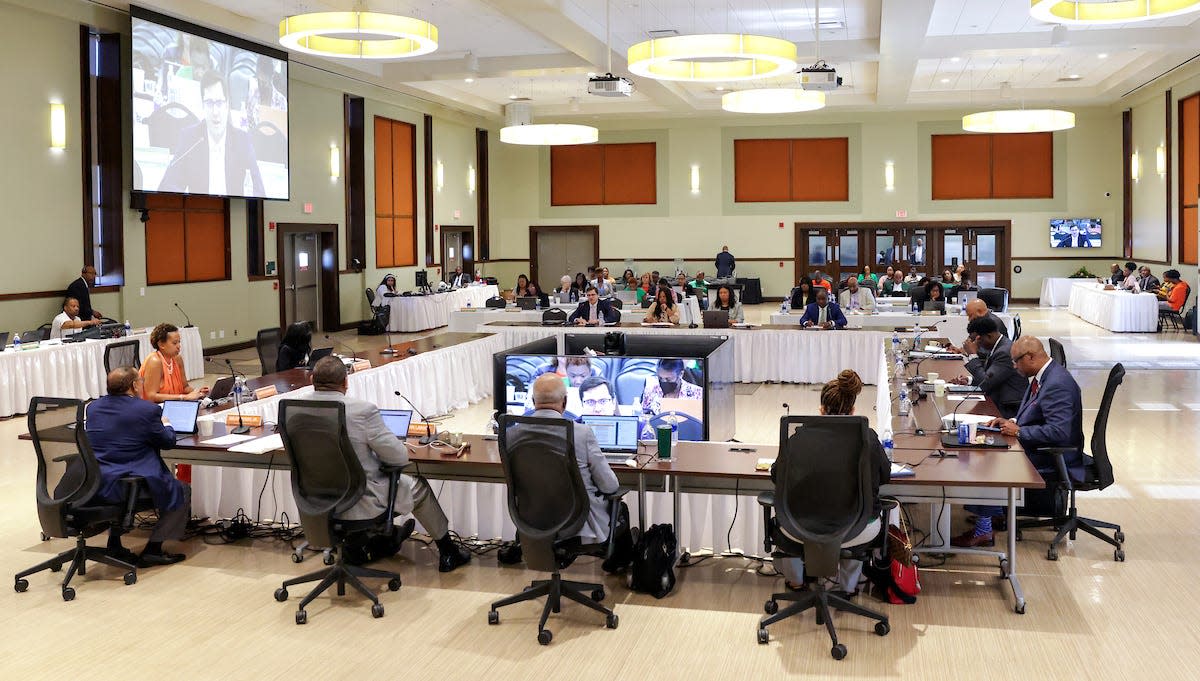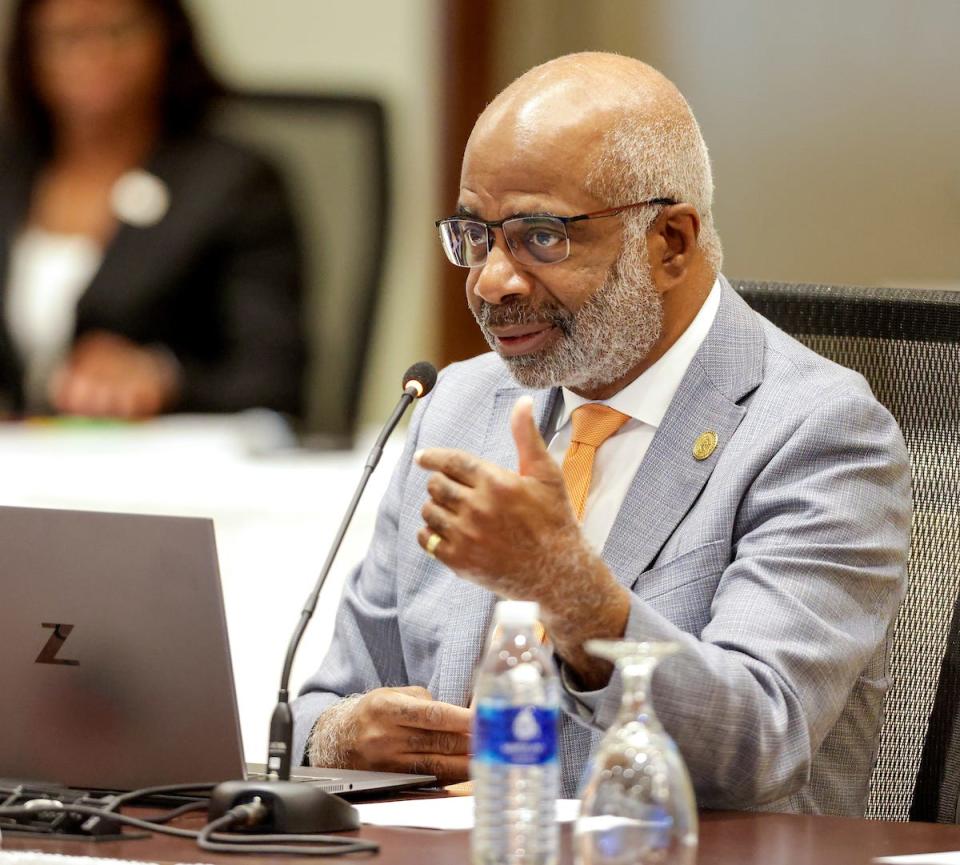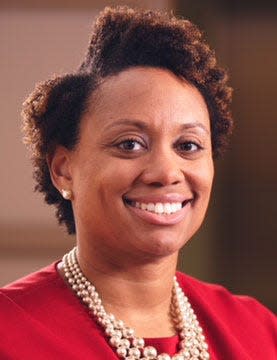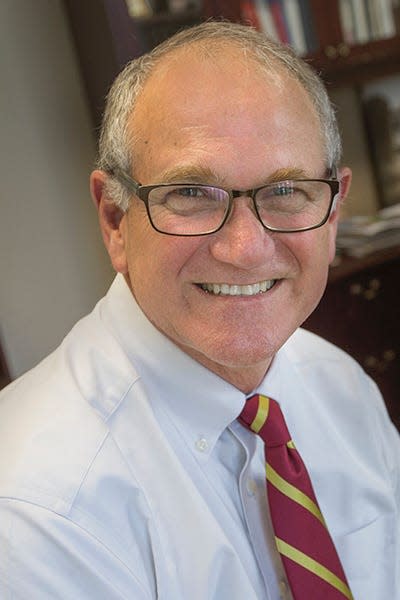‘A very big issue’: FAMU, FSU feel the significant impact of FAFSA’s simplifying changes

A new simplified FAFSA (Free Application for Federal Student Aid) is not as simple as it was set out to be for Florida A&M University and other higher education institutions across the country.
Recruiting students and distributing financial aid in a timely manner have become elevated topics of concern at FAMU after the U.S. Department of Education changed the FAFSA process last year — which led to complications in filling out the form and delays in sending financial aid information to colleges and universities.
“It’s everywhere, but for us, this is pretty serious,” FAMU President Larry Robinson said during a recent Board of Trustees committee meeting. “Not only does it interfere with the timing of financial aid packaging, but it also interferes with housing, meal plans, all of those things.”

Other FAMU, FSU news: FSU, FAMU, TCC expected to get millions in Legislature’s state budget. Here's a breakdown
Before each academic school year, current college students and high school seniors who plan on applying for federal grants, work-study and loans are required to complete the FAFSA form.
Recent updates to the form for the 2024-25 award year — such as reduced questions — were implemented in the FAFSA Simplification Act, which passed in 2020 to make the process easier for students applying for financial aid. The new version was not available until December last year compared to the usual Oct. 1 opening date.
Colleges use data from the applications, such as estimated family contributions for the year, to determine each student’s federal aid eligibility before awarding financial aid packages.
But the only way colleges and universities can know which students have completed the FAFSA — whether it be returning students or incoming students who are currently high school seniors — is when the data is received from the U.S. Department of Education, according to FAMU's Vice President for Student Affairs William Hudson Jr.
He says the DOE has not committed to a specific date of when the colleges and universities can expect to have the FAFSA data sent to them.
“It impacts everyone from scholarship recipients to our Pell recipients as well as parent PLUS loans and student loans, so it’s a very big issue,” Hudson said.

Robinson and his finance team along with administrators of higher education institutions across the country recently participated in a DOE webinar, where they shared concerns with the federal department and received updates.
The FAFSA complications include processing errors because of new formulas that emphasize wealth instead of cash flow when determining how much money students will receive.
With the national issue creating a decline in the number of students who are completing the process, only 3 million students have completed their applications as of late January compared to about 7 million students who completed the form during that same time in previous years, according to the DOE.
Students usually find out what their aid packages are by April, but the holdup also has an impact on their process of choosing a school to attend before college deadlines.
To support students and families during the delayed process, the University of Florida announced Friday that it is extending the enrollment confirmation deadline for first-year students — giving them until May 15 to accept their admissions offers instead of May 1.
While FAMU's admission dates have not changed, consultations are ongoing and a decision could be made as early as next week, according to the university's Executive Director of Admissions Hugh Durham.
Florida State University's deadline will be adjusted accordingly if the delay of receiving financial aid data makes the May 1 deadline untenable, according to an FSU spokesperson.
Related news: Some colleges offer students their own aid forms after FAFSA delays frustrate families
Robinson believes HBCUs (historically Black colleges and universities) will be impacted by the FAFSA change the most since they have a higher student percentage of Pell Grant recipients compared to other institutions such as PWIs (predominantly white institutions).
Pell Grants are federal funds awarded to undergraduate students who show an exceptional financial need to pay for college and have not yet earned a bachelor's, graduate or professional degree.
About 85% of FAMU’s students receive financial aid.
“The moral of the story is that the FAFSA simplification is not rolling out as seamlessly as was anticipated,” said FAMU Trustee Nicole Washington, who is also chair of the board’s Academic and Student Affairs Committee. “The trickle down impacts nationally are going to impact our college numbers, enrollment numbers and retention numbers nationally.”
“Right now there is no contingency plan, and I just think we all need to be aware of that,” she added. “We’re all sort of waiting with bated breath.”

At FSU, 7,333 out of 31,933 undergraduate students were Pell recipients as of fall 2023, which is nearly 23%.
“FAFSA simplification was and is a good idea, but implementation has been a challenge for financial aid offices and, more importantly, for the families and students we serve,” FSU’s Associate Vice President for Enrollment Management John Barnhill said in a statement sent to the Tallahassee Democrat.
He says FSU has received FAFSA information on a “very small” number of students as of Thursday.
“When the university receives its normal FAFSA numbers, we will work tirelessly to prepare financial packages for our students and families,” Barnhill said. “In anticipation of getting this data in the coming weeks, we have been working on the required system updates and training to allow the university to package financial aid as quickly and accurately as possible.”
FAMU has the same quick-turnaround mindset, with a team available and prepared to award students with their financial aid packages within 24 hours of receiving FAFSA data from the DOE.

While the universities wait for the information needed, the Department of Education announced plans last month to deploy at least 50 federal student aid experts within three weeks to under-resourced schools — including HBCUs — and to set up a financial aid “concierge service” for schools to contact for help.
Contact Tarah Jean at [email protected] or follow her on X: @tarahjean_.
This article originally appeared on Tallahassee Democrat: FAMU, FSU are impacted by new FAFSA process' changes and delays
